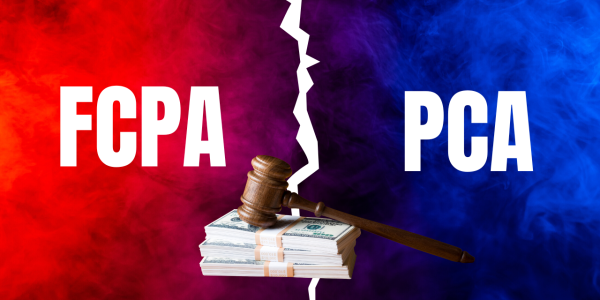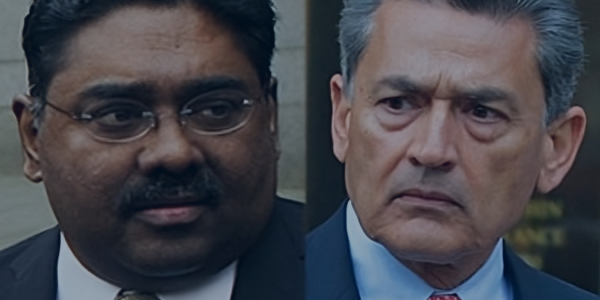For those well-versed in the lingo of corruption and bribery, FCPA and PCA are familiar terms. For the rest of the world, let’s clarify –
- FCPA refers to the Foreign Corrupt Practices Act, which was enacted by the US Congress in 1977.
- PCA refers to the Prevention of Corruption Act, which was enacted by the Indian Parliament in 1988.
The main intent of both the legislations is the same, which is to prevent and punish acts of corruption, although the FCPA deals with acts of corruption vis-à-vis foreign officials while the PCA is concerned with corruption vis-à-vis Indian public servants as defined under the Act.
The history behind the enactment of the FCPA
On 28th September 1977, a report was presented before the US House of Representatives reporting the findings of an investigation conducted by the US Securities Exchange Commission. The investigation found that 400 of the largest and most widely held public companies in the United States had made payments of more than $300 million to influence the acts or decisions of foreign government officials. To put a check on such blatant acts of corruption, the US Congress enacted the FCPA, 1977.
The history behind the enactment of the PCA
Even before the enactment of the 1988 Act, there was the Prevention of Corruption Act of 1947. In 1962, a committee under the chairmanship of K. Santhanam was made up to “review the existing instruments for checking corruption in the Central Services and to advise practical steps that should be taken to make anti-corruption measures more effective”. One recommendation of the Santhanam Committee was to amend the 1947 Act to widen the definition of criminal misconduct by a public servant. Based on the recommendation in 1964, the government introduced an amendment to the 1947 Act. This led the way for the enactment of the 1988 Act, which consolidated all corruption and bribery-related provisions present in other statutes under one umbrella.
Application of the FCPA
As mentioned above, the FCPA originally dealt with acts of corruption by US citizens, companies (and their employees, officers, directors, stockholders and agents), and issuers of security listed on the US stock exchanges to obtain or retain work from foreign officials. Liability of US individuals and entities also arises when affiliated foreign individuals or entities indulge in corruption outside of the US using funds in foreign accounts. Foreign officials include foreign political parties and candidates for foreign political offices.
The conduct prohibited under the FCPA is payment to a foreign official to make such official do or omit to do an act in violation of their lawful duty or to secure any improper advantage for obtaining or retaining business.
The FCPA also requires all companies, including foreign companies listed on the US stock exchanges, to meet its accounting provisions. This means they need to (a) have books and records that accurately reflect their transactions and (b) devise and maintain an adequate system of internal accounting controls. However, in 1998, the FCPA was amended to apply to even foreign firms and persons who directly or through agents indulged in corruption within the US.
Application of the PCA
Unlike the FCPA, the PCA punishes only Indian “public servants” who indulge in acts of corruption. “Public servant” is defined under Section 2 (a) (c) of the PCA to include a wide range of people employed by the government or a government entity, performing a public function or public duty, or associated in some capacity with the government. For example, employees of public banks come under the ambit of the PCA, since they perform a public function. Judges, arbitrators, vice-chancellors of universities and office bearers of a registered cooperative society receiving government aid are also considered public servants.
The original PCA of 1988 only penalised the bribe-takers, however, there was no provision to punish the bribe-givers unless they were prosecuted for abetment of corruption. In May 2011, India ratified the UN Convention against Corruption (UNCAC) and amended the PCA in 2018 to bring it in line with UNCAC. One of the most significant amendments made in 2018 was that now even bribe-givers could be prosecuted and faced imprisonment up to 7 years if convicted. Where the bribe-giver was a commercial organisation, the organisation could be penalised with a fine whereas any director, manager, secretary or other officer involved in the bribery could be penalised with imprisonment up to 7 years. The amendment also clarified that in case a person had been compelled to pay a bribe, they could report the matter to an investigating agency within 7 days to avoid prosecution under the PCA.
It is noteworthy that at present India has no law which prosecutes individuals or companies for paying bribes to foreign officials.
Prohibited conduct and punishments under the FCPA
The US Securities and Exchange Commission (SEC) and the Department of Justice (DOJ) enforce the FCPA. The SEC’s Enforcement Division has a specialised unit which takes up enforcement actions against companies found to be violating the FCPA.
There are two types of penalties that can be imposed under the FCPA — criminal and civil penalties.
- Criminal penalties can include fines of up to $2,000,000 for companies and up to $100,000 for the companies' officers, directors, stockholders, employees and agents. Individuals found guilty under this law may also be imprisoned for up to 5 years. An independent auditor may also be appointed to ensure future compliance with the FCPA by the company.
- Civil Penalties can include a fine of up to $10,000 against any company and any of the company’s officers, directors, employees or agents, or even stockholders acting on behalf of the company. During SEC enforcement actions, the Court at its discretion can impose even higher penalties, which can even be as much as the amount of pecuniary gain hoped to be gained by the offender by giving the bribe.
In the year 2022, some of the enforcement actions taken by the SEC have been against –
- Tenaris (a global manufacturer and supplier of steel pipe products based in Luxembourg accused of bribery through its Brazilian subsidiary),
- Stericycle, Inc. (a leading provider of medical waste and other services accused of violations at its subsidiaries in Argentina, Brazil, and Mexico), and
- KT Corporation (a South Korean Telecommunications company that made improper payments to government officials in Korea and Vietnam).
There are, however, certain payments made to foreign officials which do not fall foul of the FCPA. FCPA makes an exception for “facilitation payments” which are payments made for facilitating routine government action by foreign officials. Routine government action would include work such as grant of permissions to do business in a foreign country, grant of visas and work permits, grant of phone and water supply services, and other such work required for conducting business in such foreign country. The distinction between facilitation payments and bribes is that facilitation payments are made to facilitate (even expedite) a decision already taken in favour of the payer, whereas bribes are given to influence the decision of the official in favour of the payer.
Prohibited conduct and punishments under the PCA
Under the 1988 Act, the following acts were punishable –
1) The taking of gratification other than legal remuneration by a public servant in respect of an official act; 2) The taking of gratification to influence a public servant through corrupt means; 3) The taking of gratification to exercise personal influence on a public servant; 4) A public servant obtaining a valuable thing with zero or inadequate consideration from a person concerned with a business transacted or about to be transacted by them; and 5) Criminal misconduct by a public servant.By the amendment of 2018, some changes were introduced to the definition of conduct that was punishable under the PCA. For example, now any public servant who got or attempted to get an “undue advantage” for performing or not performing a public duty or accepted as a reward such “undue advantage” for performing or not performing a public duty, can be punished under the PCA. This would apply even to public servants who received an "undue advantage" for inducing other public servants to perform or not perform a public duty. Those who colluded in the bribing of the public servants could also be prosecuted under the Act.
Similarly, “criminal misconduct” was redefined to include only two things – (a) the dishonest conversion or misappropriation of property entrusted to a public servant, and (b) the intentional illicit enrichment of a public servant during his period of office.
As mentioned above, the amendment also brought within the ambit of the PCA bribe-giving individuals and companies. It is noteworthy, however, that, unlike the FCPA, there is no exception for "facilitation payments" under the PCA. Explanation 1 of Section 7 of the amended Act clearly states that it would be an offence, even if the performance of public duty for which the “undue advantage” has been given is not improper. Therefore, if a person pays a bribe to get the process of issuance of a passport expedited, that would be an offence under the PCA.
The punishment for most offences under the PCA includes imprisonment ranging from 3 to 7 years and imposition of fines.
Conclusion
Since the PCA and the FCPA occupy two slightly different but overlapping fields of criminal misconduct, it would not be correct to compare the two acts to say which act is more stringent. Suffice it to say that while the US has laws to deal with corruption at home and abroad, the Indian law still has the international corruption angle missing. With India spreading its economic wings around the world, a law dealing with bribery of foreign officials must be enacted, otherwise, India's tough stance on corruption will lose some of its toughness.
Author: Pallavi Mohan Editor: Sumali Nagarajan
References:
- House Committee on Interstate and Foreign Commerce (September 28, 1977). "H.R. Rep. 95-640 REPORT together with MINORITY VIEWS To accompany H.R.3815" (PDF). Archived (PDF) from the original on April 12, 2015. Retrieved February 22, 2015.
- SEC Enforcement Actions: FCPA Cases, U.S. Securities and Exchange Commission
DISCLAIMER – No information contained in this website may be reproduced, transmitted, or copied (other than for the purposes of fair dealing, as defined in the Copyright Act, 1957) without the express written permission of Rainmaker Online Training Solutions Pvt. Ltd.










